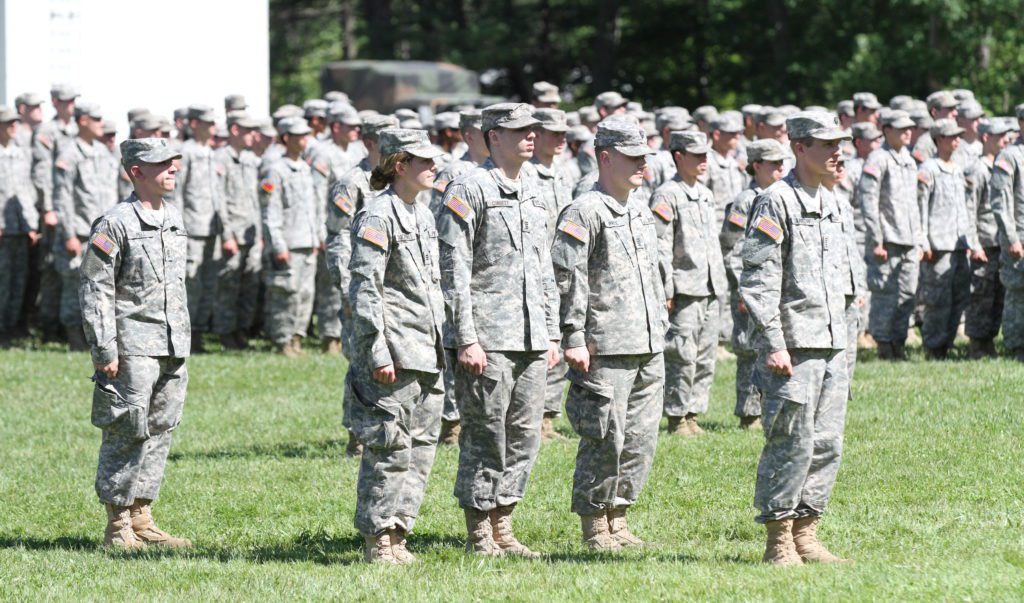This content discusses the power of humor in the military. It highlights the importance of humor as a coping mechanism, stress reliever, and morale booster for soldiers. The content also explores the role of humor in training, emphasizing how it can break the ice, reinforce learning, and create a positive learning environment. It emphasizes the need for responsible use of humor, respecting boundaries and cultural differences. The conclusion highlights the benefits of humor in creating a healthier and more resilient military environment when used appropriately.
Laughs in the Line of Duty: The Power of Humor in the Military
Introduction
Life in the military is undoubtedly a serious affair with high stakes and significant responsibilities. However, amidst the tough training, demanding missions, and the weight of responsibility, there exists a powerful tool that helps soldiers cope with the challenges they face – humor.
The Importance of Humor
Humor is a universally recognized coping mechanism. In the military, it serves as a means for soldiers to relieve stress, build camaraderie, and maintain morale in even the darkest of times. Soldiers often find themselves in highly intense situations, and laughter can help defuse tension and provide a momentary escape.
1. Stress Relief
The military is known for its demanding nature, and stress is an inevitable part of a soldier’s life. Incorporating humor into daily activities helps soldiers reduce stress levels and maintain mental well-being. Humor can help shift the focus from the gravity of the situation to a more lighthearted perspective, allowing soldiers to momentarily detach from their stressors and recharge.
2. Building Camaraderie
Humor is the glue that binds soldiers together. Shared jokes and humorous moments create a sense of belonging, fostering camaraderie among soldiers. In the military, where teamwork and trust are crucial, humor acts as a social lubricant, encouraging effective communication and enhancing cohesion within units.
3. Maintaining Morale
In challenging times, morale often suffers, but humor can be a powerful tool to counteract this. Soldiers who can find humor in difficult situations are more likely to maintain a positive outlook and preserve morale even in the face of adversity. A well-timed joke or a humorous incident can provide the necessary motivation and resilience to soldiers, helping them stay focused on their objectives.
The Role of Humor in Training
Training in the military can be physically and mentally grueling. However, the incorporation of humor can help soldiers navigate through the challenges and make the process more enjoyable and effective.
1. Ice Breaker
At the beginning of training, humor can act as an ice breaker, helping soldiers feel more comfortable and open with one another. It creates a relaxed environment, breaking down barriers and facilitating communication between soldiers and their trainers. By establishing a connection through laughter, soldiers can bond more quickly and effectively as a team.
2. Reinforcing Learning
Humor has been proven to enhance memory retention and improve learning outcomes. By incorporating humor into training exercises, soldiers are more likely to remember important information and skills. It helps create a positive association with the training process and fosters a mindset of continuous growth and improvement.
Using Humor Responsibly
While humor serves as a valuable coping mechanism, it is essential to exercise tact and sensitivity when using it in the military.
1. Respect
Humor should never violate the principles of respect and inclusivity. It is crucial to be mindful of cultural, religious, and individual differences when engaging in humorous exchanges. Soldiers must uphold the values of respect and understand the boundaries of what is considered appropriate in their specific context.
2. Timing
Humor should be used judiciously, ensuring that it does not minimize the seriousness of a situation or offend individuals. Soldiers must develop the emotional intelligence to recognize appropriate moments for humor and exercise restraint when necessary.
Conclusion
Laughter is a powerful tool that soldiers use to cope with the rigors of military life. It serves as a stress reliever, promotes camaraderie, and maintains morale in the face of adversity. However, it is important to exercise responsibility and sensitivity when using humor, ensuring that it does not undermine the principles of respect, inclusivity, and professionalism. When utilized appropriately, humor acts as a respite, fostering a healthier and more resilient military environment.
